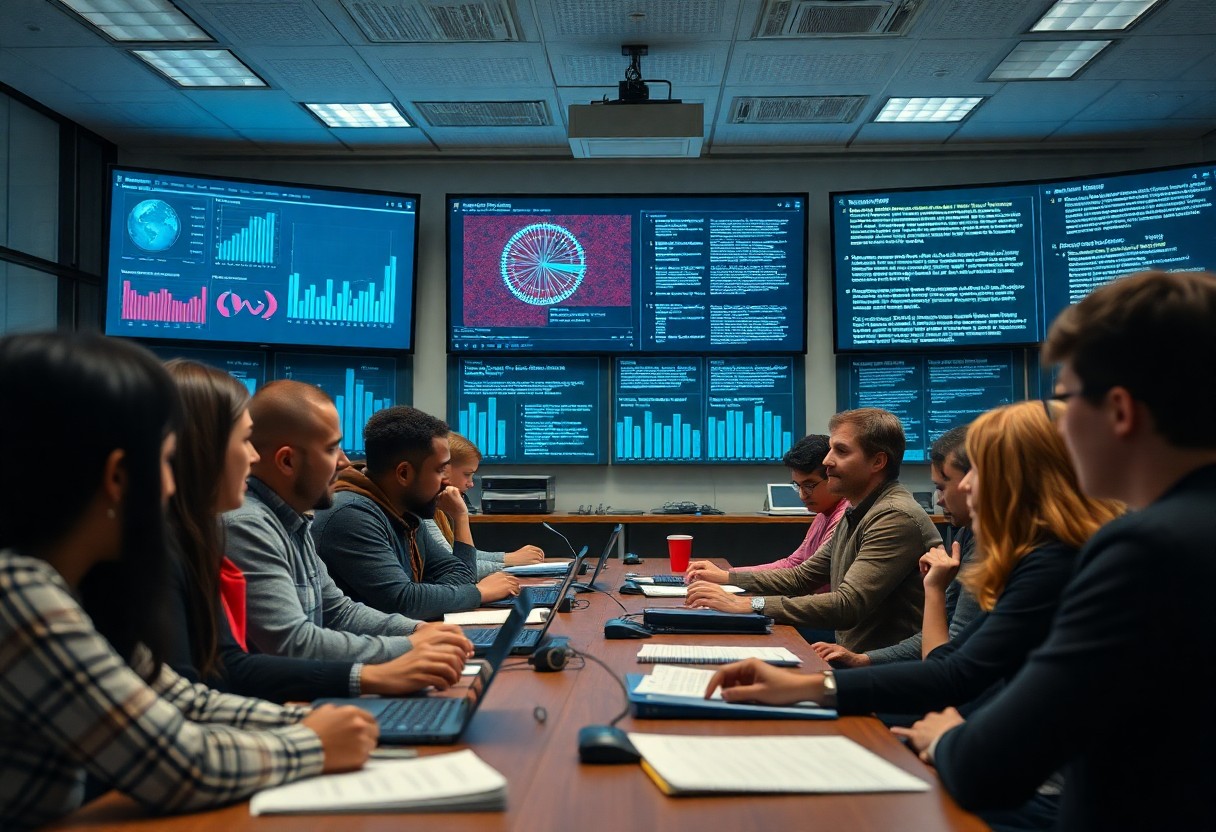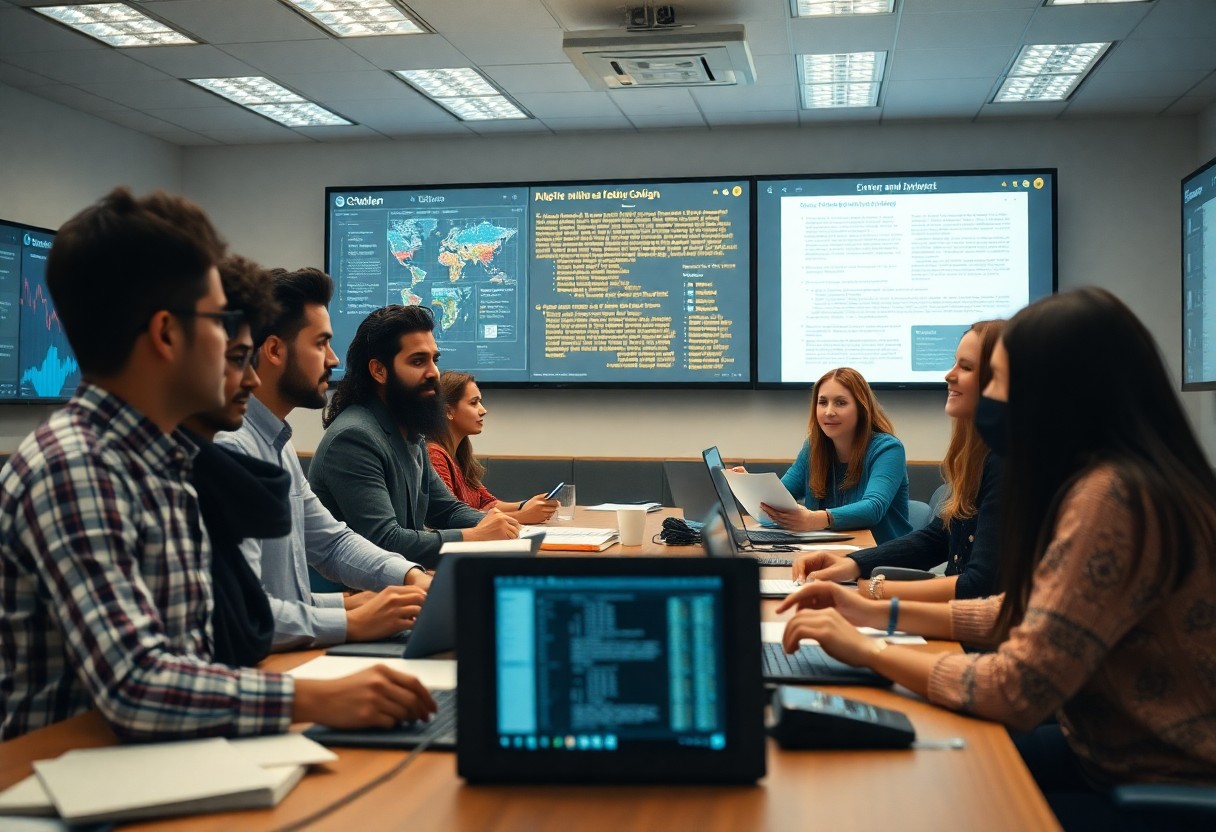Digital technologies are revolutionizing the way you can engage with and interpret humanities subjects, opening up new pathways for scholarship and research. A Master of Digital Humanities (MDH) equips you with the interdisciplinary skills to combine traditional humanities studies with cutting-edge digital tools and methodologies. By pursuing this degree, you will learn to analyze cultural and historical data, create digital projects, and enhance your career prospects in an increasingly digital world. This post will guide you through the key components of an MDH program and its significance in today’s academic landscape.

Key Takeaways:
- The Master of Digital Humanities (MDH) program integrates traditional humanities scholarship with digital technology, equipping students with the skills to analyze and present cultural artifacts using digital tools.
- Students in the MDH program are exposed to a multidisciplinary curriculum that spans areas such as data analysis, coding, and critical theory, enabling them to understand and utilize digital platforms in various humanities contexts.
- The program encourages collaboration across disciplines, allowing students to work on innovative projects that often intersect with fields such as history, literature, art, and computer science.
Definition of Digital Humanities
To understand Digital Humanities, you must recognize it as an interdisciplinary field that merges traditional humanities disciplines with modern digital tools and methodologies. This synergy allows you to explore and analyze cultural, historical, and literary contexts in innovative ways, utilizing technology to enhance your research and deepen your understanding of human experiences through computational approaches.
Origins and Evolution
About the origins of Digital Humanities, you can trace its roots back to the late 20th century, emerging from the intersection of humanities disciplines and computer science. As scholars began to incorporate technology into their research, a new field was born, evolving from text encoding and online archiving to more complex analyses and digital representations of cultural artifacts.
Key Concepts and Theories
Origins of key concepts in Digital Humanities lie in various theoretical frameworks, such as textual analysis, cultural analytics, and visualization. These areas focus on how digital tools can transform traditional humanities practices by allowing you to engage with texts and data in ways that were previously unimaginable. Through methods like data mining and network analysis, you can uncover patterns and insights that enhance your understanding of human narratives.
In addition to these foundational theories, Digital Humanities also emphasizes collaborative research and the sharing of knowledge across disciplines. By engaging with diverse methodologies, you can create a more comprehensive understanding of cultural phenomena. This perspective encourages you to think critically about the implications of technology in humanistic inquiry, fostering an environment where traditional scholarship combines seamlessly with innovative digital practices.
Master of Digital Humanities (MDH) Programs
There’s a growing interest in Master of Digital Humanities (MDH) programs, as they blend traditional humanities studies with cutting-edge technology. These programs are designed to equip you with the tools and knowledge necessary to analyze and interpret digital data in innovative ways. Whether you’re drawn to literature, history, or cultural studies, an MDH program will empower you to engage deeply with digital resources and methodologies, setting you apart in both academic and professional landscapes.
Curriculum Overview
Behind the scenes, MDH programs feature a diverse curriculum that combines theoretical knowledge with practical skills. You will explore topics such as digital archiving, data visualization, and computational methods while working on hands-on projects that foster your creativity and critical thinking. This interdisciplinary approach ensures that you gain a well-rounded education that incorporates both humanities perspectives and technical expertise.
Skills and Competencies Acquired
By enrolling in an MDH program, you can expect to acquire a range of skills that are increasingly valuable in today’s digital landscape. You will develop proficiency in digital tools and methodologies, enhancing your research capabilities and enabling you to communicate complex ideas effectively across platforms.
Plus, you’ll gain competencies in data analysis, project management, and interdisciplinary collaboration. These skills not only boost your resume but also prepare you to navigate various career paths, from academia to the tech industry. As you learn to engage critically with digital artifacts and technologies, you’ll also refine your ability to adapt to rapid changes in the digital environment, making you a versatile professional ready for future challenges.
Career Opportunities
Once again, the Master of Digital Humanities opens a diverse array of career opportunities, equipping you with skills to thrive in both academia and industry. Graduates find themselves well-prepared for roles that bridge technology and the humanities, ensuring a robust job market in various sectors.
Academia and Research Positions
Along your journey, pursuing a career in academia or research can be immensely rewarding. Positions at universities and research institutes allow you to explore interdisciplinary projects, conduct research, and contribute to innovative digital humanities scholarship, all while shaping the next generation of scholars.
Industry Applications
Against the backdrop of digital innovation, your skills in Digital Humanities can lead to exciting roles within various industries. Businesses and organizations increasingly seek professionals who can analyze data, manage digital projects, and creatively interpret cultural content.
Career opportunities in industry often include roles in digital marketing, data analysis, and project management. As the demand for digital proficiency continues to grow, your expertise can enhance user experience, optimize content strategies, and engage audiences effectively. By integrating technology with humanitarian insights, you position yourself as a valuable asset in the rapidly evolving digital landscape.

Challenges in Digital Humanities
Many people entering the field of Digital Humanities encounter various challenges that can hinder their progress. These challenges range from technological complexities to ethical dilemmas that require careful consideration. Understanding these barriers is imperative for developing strategies that will empower your research and work in this evolving discipline.
Technological Barriers
Challenges in Digital Humanities often stem from technological barriers that can impede your ability to fully engage with digital tools and methods. In a field that rapidly evolves, staying updated on software, data management, and emerging technologies can be daunting. Additionally, a lack of technical training may leave you feeling ill-equipped to leverage these digital resources effectively, limiting your potential impact.
Ethical Considerations
After navigating the technological landscape, you must also face ethical considerations that arise in Digital Humanities projects. As you analyze and present data, issues related to privacy, ownership, and representation come to the forefront, requiring you to engage with these dilemmas thoughtfully.
It is imperative to recognize that ethical considerations in Digital Humanities extend beyond mere compliance with regulations. You should actively reflect on how your work interacts with diverse communities and the broader cultural context. Issues such as informed consent, the representation of marginalized voices, and the potential misuse of data are pivotal. Engaging critically with these ethical dimensions will not only enhance the integrity of your research but also foster a more inclusive digital landscape.
Future of Digital Humanities
After exploring the current landscape of digital humanities, you can anticipate a vibrant future marked by increased collaboration across disciplines and communities. As digital tools continue to evolve, you will likely see new opportunities for innovative research methodologies, enhanced accessibility to cultural resources, and the expansion of digital literacy programs. The integration of technology into humanities will only deepen, allowing your engagement with texts, artifacts, and historical contexts to become more immersive and interactive.
Trends and Innovations
On the horizon, trends in digital humanities are leaning towards open access, where knowledge becomes increasingly democratized. Advances in visualization techniques and interactive projects will empower you to engage with complex data in meaningful ways. Furthermore, interdisciplinary collaborations are expanding, bridging the gap between humanities and technology to create enriched learning experiences.
The Role of AI and Machine Learning
One of the most exciting developments in digital humanities is the application of AI and machine learning. These technologies are enabling you to analyze vast amounts of text and data, uncover patterns, and generate insights that would be difficult to achieve manually.
With AI and machine learning, you have the ability to automate processes such as text mining, sentiment analysis, and image recognition. This not only streamlines your research but also allows you to explore new avenues by identifying trends or themes within large datasets. As these technologies improve, you can expect tools that will help you make connections between historical events and contemporary issues, thus enriching your understanding of context and meaning in various cultural artifacts.
Conclusion
From above, you can see that pursuing a Master of Digital Humanities (MDH) offers a unique opportunity to blend technology and the humanities, enriching your skill set for the digital age. This interdisciplinary program equips you with the tools to analyze cultural artifacts and communicate complex ideas effectively. By engaging with various digital methodologies and technologies, you enhance your critical thinking and creativity, preparing you for diverse career paths in academia, cultural institutions, or industry. Choosing an MDH program could be your next step towards making a meaningful impact in the world of digital scholarship.

